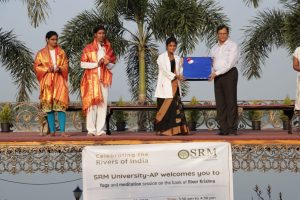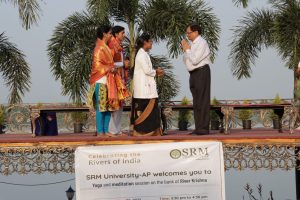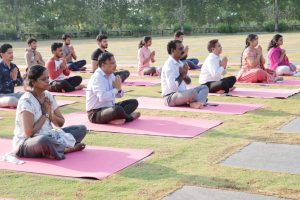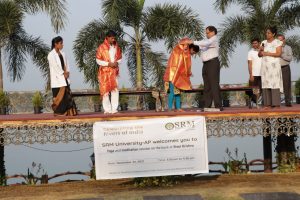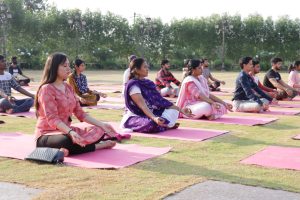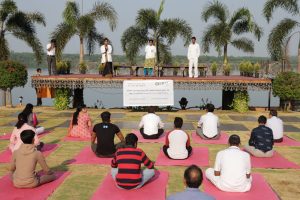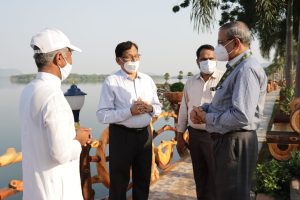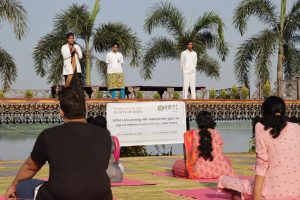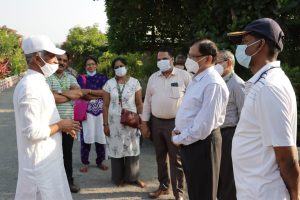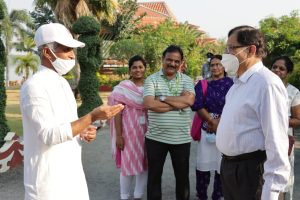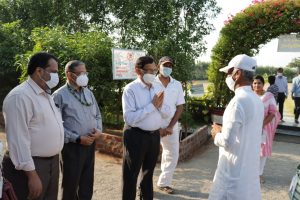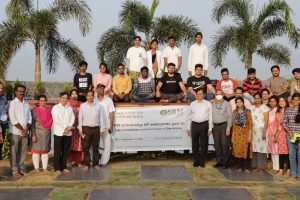BSc Biology student to intern at Harvard Medical School
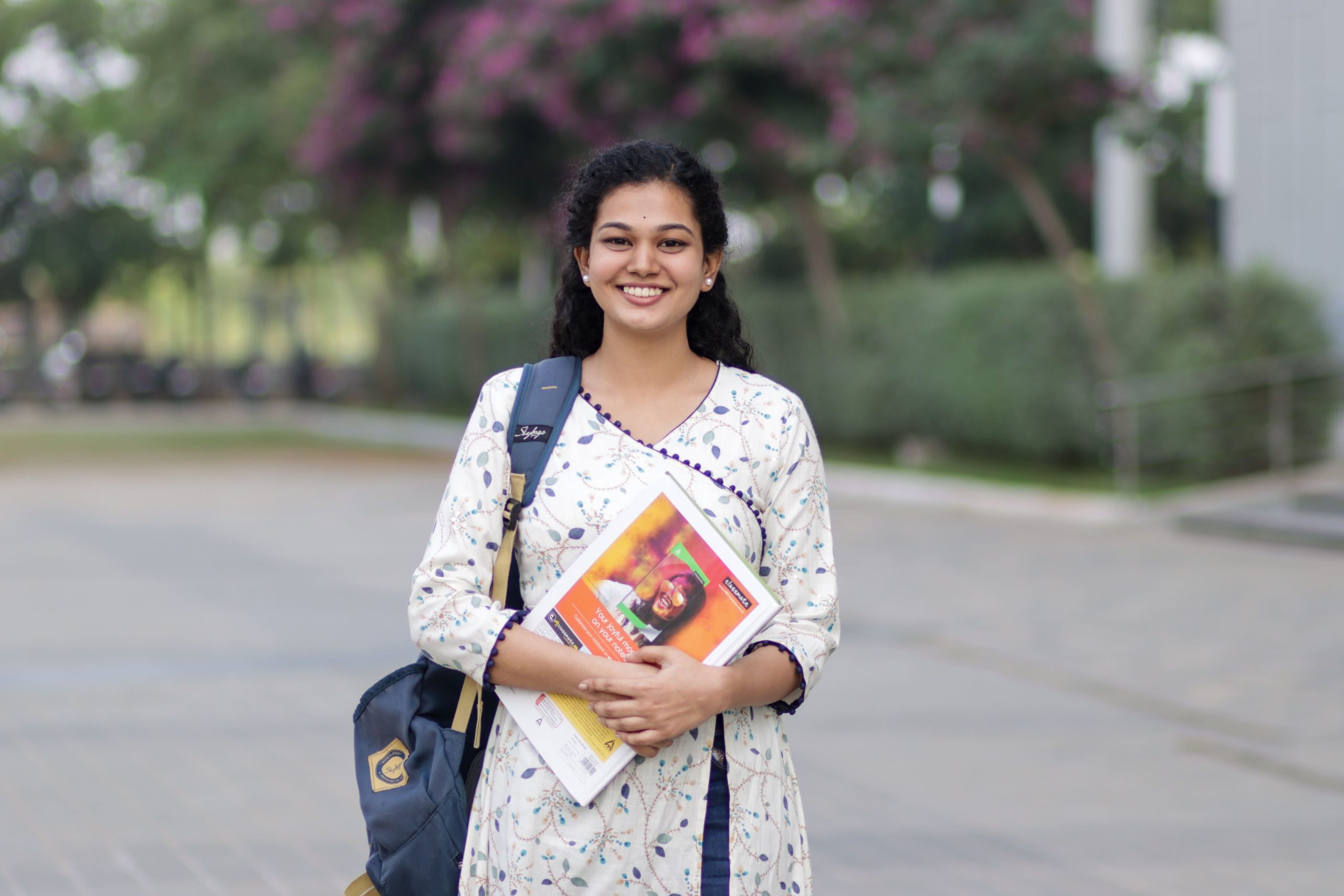 Rallapalli Bhavana Durga, a budding researcher from BSc Biology at SRM University-AP, earns an international internship at Harvard Medical School. The six-month internship will focus on bioengineering, cancer, and other biomedical research. The days at Harvard Medical School will impart an understanding of the development of cancer in an in-vitro model fabricated by the bioengineering approach.
Rallapalli Bhavana Durga, a budding researcher from BSc Biology at SRM University-AP, earns an international internship at Harvard Medical School. The six-month internship will focus on bioengineering, cancer, and other biomedical research. The days at Harvard Medical School will impart an understanding of the development of cancer in an in-vitro model fabricated by the bioengineering approach.
The Office of International Relations and Higher Studies guided Ms Bhavana throughout the application process. Every eligible student who applies for study abroad programmes is given orientation and motivation to bridge the attainment gap. They share information about various research/internships/projects with interested students. Ms Bhavana qualified the eligibility criteria for Harvard Medical School, which focuses on Tissue engineering and other Biomedical engineering fields. After completing the screening, she received a welcome e-mail for the internship at Dr Shiladitya Sengupta & Haelin Jang’s lab in Brigham and Women’s Hospital, Harvard Medical School. During the internship period, she will be involved in i) research-related activities involving the hands-on discovery of new biological pathways in cancer metastasis and (ii) writing for publications.
“I have received a lot of support from my professors and Dr Swetha Pasupuleti, Associate Director, International Relations”, says Ms Bhavana. “From the beginning, all my professors have been very encouraging, and their suggestions and criticisms were constructive. Dr Swetha has been very supportive and reassuring during the application process, taking away my inhibitions. I feel excited about my internship”, she added.
To tackle barriers to postgraduate education, SRM University-AP has designed ambitious programmes that improve the admission of students to global institutions. International Relations and Higher Studies department ensure that all students and faculty on campus are supported and assisted in gaining access to resources in order to achieve the vision and mission of SRM University-AP in becoming a multidisciplinary global university.
- Published in Biology News, Departmental News, IR-News, News, Students Achievements
Dr Inbarasan Muniraj receives SERB-SRG-DST grant to improve low light imaging
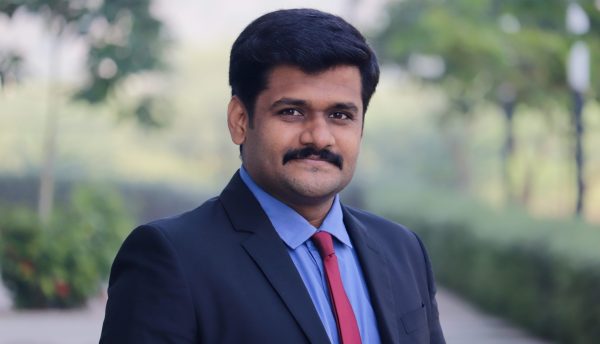 Imaging various three-dimensional (3D) objects under ultra-darkness is a fascinating process. However, our conventional cameras are not intelligent enough to capture the experience. Dr Inbarasan Muniraj, Assistant Professor in the Department of Electronics and Communications Engineering, is all about changing that.
Imaging various three-dimensional (3D) objects under ultra-darkness is a fascinating process. However, our conventional cameras are not intelligent enough to capture the experience. Dr Inbarasan Muniraj, Assistant Professor in the Department of Electronics and Communications Engineering, is all about changing that.
Dr Inbarasan Muniraj’s project, “Sensing in the dark: An automated off-focused points detection and removal from the photons starved 3D volumetric dataset”, has received a SERB-SRG-DST of Rs. 20.8 lacs for a two-year duration.
Dr Muniraj describes his project as such,
“Assume that there is no external light, e.g., a dark room, when you capture an image using a camera (mobile or DSLR). Often, the captured images will look dark, and it is too difficult tointerpret anything from the picture. However, algorithms have been developed to make use of the low scattered photons from a scene to estimate the equivalent normal intensity image. We use one such technique to generate photons-counted images for a 3D object and perform a 3D image reconstruction. One of the major problems in 3D reconstruction is off-focused points which look blurry and redundant. Therefore, in this project, we aim to employ a deep learning technique to smartly recognise and remove the off-focused points from a reconstructed 3D scene under photons starved conditions.”
Dr Inbarasan Muniraj is the sole investigator of this project. According to him, there are much more extensive social implications associated with this project. To note, this technique can be extended for various applications such as night vision, security, and biomedical imaging etc.
- Published in Departmental News, ECE NEWS, News, Research News
SRM University-AP takes part in Celebrating the Rivers of India
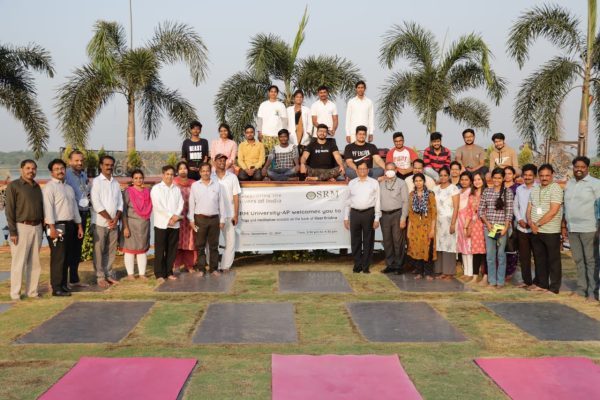 The students, faculty, and other staff members of SRM University-AP spent a memorable evening on the banks of River Krishna as a part of Celebrating the Rivers of India.
The students, faculty, and other staff members of SRM University-AP spent a memorable evening on the banks of River Krishna as a part of Celebrating the Rivers of India.
As a part of Azadi ka Amrit Mahotsav, the Ministry of Jal Shakti, Government of India, organises various programmes on the theme Celebrating the Rivers of India. This revitalising excursion organised by the Department of Student Affairs at SRM AP was held in honour of the fourth largest river at Manthena Satyanarayana Arogyalayam, Thullur, Vijayawada.
Dr Manthena Satyanarayana introduced the gathering to the practice of naturopathic medicine which is based on modern and traditional, scientific, and empirical methods. Dr Gangadhar, Ms Chaitanya and Dr Prema led a short rejuvenating yoga and meditation session for the participants.
The practitioners at the Arogyalayam were honoured with stoles and mementos as tokens of appreciation. Dr R Premkumar-Registrar, Directors of various departments, and Deans of schools were present on the occasion.
Arogyalayam Research Centre advocates protecting health by increasing the level of immunity and enhancing life-force (praana sakti) amidst very pleasing natural environs, with the help of experts and experienced personnel, under the overall supervision of Dr Manthena Satyanarayana.
“The waterfront and the refreshing greenery of nature heals our mind and soul in this stressful modern-day life”, said Prof V S Rao, Vice-chancellor, SRM University-AP. The event, organised for Celebrating the Rivers of India, gave the participants an opportunity to unwind, relish the view of boats gliding smoothly on the river, enjoy the lush bushes growing all around, and do yoga in the delightful breeze with serene atmosphere.
- Published in News


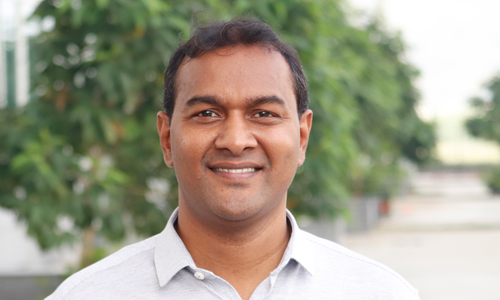 SRM University-AP is pleased to announce that
SRM University-AP is pleased to announce that 